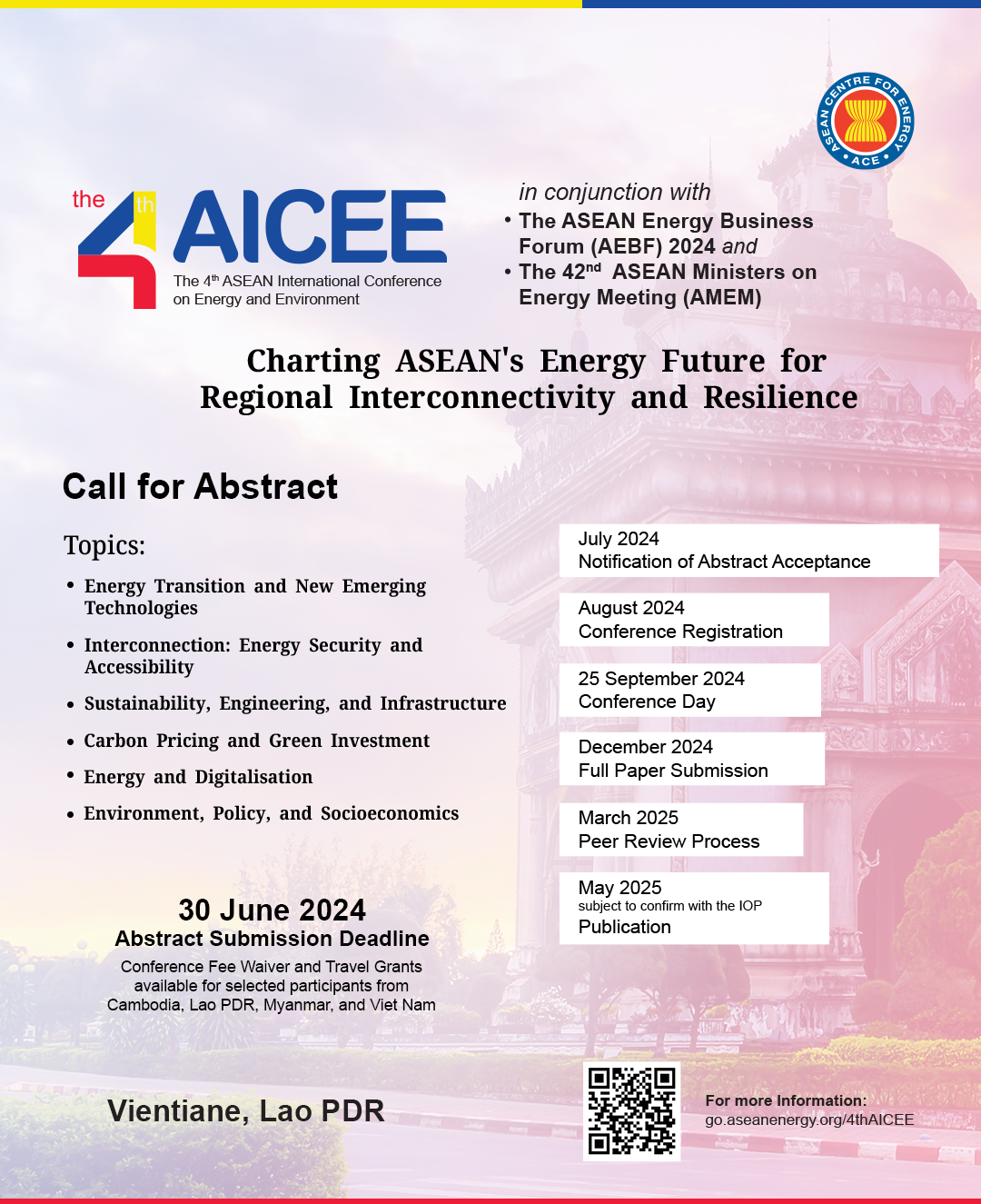ASEAN International Conference On Energy And Environment (AICEE)
The 4th ASEAN International Conference on Energy and Environment
(The 4th AICEE)
in conjunction with
The ASEAN Energy Business Forum (AEBF) 2024
and the 42nd ASEAN Ministers on Energy Meeting (AMEM)
Vientiane, Lao PDR | 27 – 25 September 2024

Welcome to the 4th ASEAN International Conference on Energy and Environment (AICEE)!
A flagship annual conference organised by the ASEAN Centre for Energy (ACE).
As the world grapples with the energy security issues have become even more important for the region. Under the ASEAN Lao PDR Chairmanship in 2024, connectivity and sustainability have become two priority agendas, strengthening interconnectivity in energy supply and market in ASEAN.
On the other hand, the ASEAN Plan of Action for Energy Cooperation (APAEC) Phase II: 2021-2025, a regional blueprint on energy cooperation, has a theme and sub-theme in which embracing energy transition is one of the key elements to achieve regional energy security and environmental sustainability.
Therefore, the concerns on energy security and sustainability call for collaborative planning and action between energy and climate change policymakers, scholars, and businesses, to find common ground and ensure success in both areas. Energy and climate experts sometimes work in their own chambers and have limited interaction with each other. To bridge the chamber and pave the way forward, the short-run target of energy security and the long-run target of sustainability should be reconciled within the framework of the energy transition. During the energy transition, a mixture of fossil fuels and renewable energy that maximises economic growth and minimises emissions might be preferable. The optimal road map to decarbonisation and shift to low carbon energy should also be developed.
The theme for this year’s AICEE is “Charting ASEAN’s Energy Future for Regional Interconnectivity and Resilience“. This conference aims to facilitate discussions on interdisciplinary and cross-sectoral issues to promote the ASEAN Energy Blueprint and energy priorities of ASEAN Indonesia Chairmanship.
The objectives of the 4th AICEE are twofold: firstly, to provide a forum for knowledge sharing among academia, policymakers, and the business sector on issues related to energy and climate change in ASEAN; secondly, to strengthen interdisciplinary and multi-stakeholder collaboration in ASEAN to accelerate a resilient energy security and transition.
Join us at the 4th AICEE for an engaging and fruitful conference that will shape the future of energy in ASEAN. Don’t miss this opportunity to participate in inspiring discussions and establish valuable collaborations that will drive sustainable development in the energy sector.
Speakers
Opening Remarks
- Phoxay Sayasone, Minister of Energy and Mines of Lao PDR
- Dr Nuki Agya Utama (Executive Director of ASEAN Centre for Energy)
Hosted by











